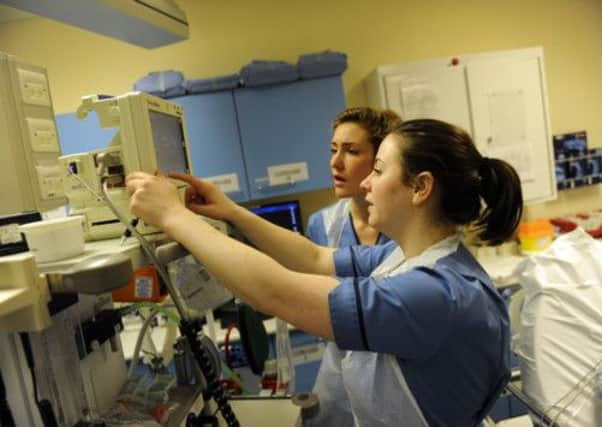Public services must meet public need


IN 2011, Campbell Christie published his Report into the Future Delivery of Public Services. His recommendations were broadly that people should have more say in the design and delivery of the services they use, that public services must work better together and that they must be more efficient and focus more on preventative measures. Basically, he was recommending that public services become more like the services the public want and less like the services it suits them to be.
His conclusions have led to legislation across the public sector, including the Public Bodies (Joint Working) (Scotland) Bill, currently going through the Parliament. Despite its generic title, this Bill is about integrating health and social-work services, with an emphasis on the care of adults and particularly older people.
Advertisement
Hide AdAdvertisement
Hide AdWith a growing older population and a population that generally wants more from the services they receive, this is an area where the legislation could have a huge impact and benefit. But legislating for something doesn’t make it happen; just because you put something in statute, doesn’t make it so. As with so many things, in reality it comes down to the people who deliver these services wanting to make the changes and improvements.


There are lots of people from different organisations and professional backgrounds who need to come together to make these changes happen. From social workers to GPs, clinicians in hospitals to community nurses, occupational therapists, accountants, chief executives and elected members – they all have a part to play.
This might sound like a mammoth task, but not if you consider the aims. The ultimate aim of integrating services, made clear in Campbell Christie’s report is to make things better for the people who need them. That applies to the integration of health and social care as much as it does to any other group of services. At the moment we each do that, some better than others and some in spite of the organisations we work in, but there is no doubt that social work and health aim to do the best for the people they support.
We each do it in our own way, but amalgamating these services also has the added benefit of pulling together the expertise, knowledge and specialisms of a number of professions. Social work will make its own unique contribution to these arrangements, just as health and others will. But for social workers, integrated working is what we do best.
That said, bringing together essentially two massive services – social work and health – from within organisations steeped in different cultures and histories is not without its difficulties.
We have to balance the holistic approach to people practised by social work with the clinical approach from health; we need to take account of the fact that social-work services are part of local government and independent of central government, which directly runs the health service; and we need to be realistic about how we measure success, which is driven by outcomes in local government and specific targets across the NHS.
We also need to consider that it is not just the NHS and social work that deliver these services, but voluntary and independent sector organisations too; and that it is not just about integration, but about giving people choice and control over the services they need and use.
But it’s been done before, many times, and research across Scotland, England, Northern Ireland and Wales, as well as internationally, shows we need to take account of clear lessons gleaned from the experience of others.
Advertisement
Hide AdAdvertisement
Hide AdOur research report Four Nations United shows that we need a clearly articulated and widely shared vision of why, how and for what benefit we are making changes; a financial strategy that is realistic about costs; flexible organisational arrangements that support a common purpose; and that we pay attention to and deal with matters of culture through effective leadership.
This research complements another report we commissioned from the Institute of Research in Social Services, which focuses on how to deliver these services in the way people want and need them.
The key to success is clear: we need to understand what people need and want, and what works for them, and work back to ensure our services are in a position to deliver that.
As long as that is our shared aim, as long as our only focus is on the people we serve, we can deliver what Campbell Christie envisaged.
n Sandy Riddell is the President of the Association of Directors of Social Work. Both reports are available at www.adsw.org.uk. Follow ADSW on Twitter: @ADSWSocialWork